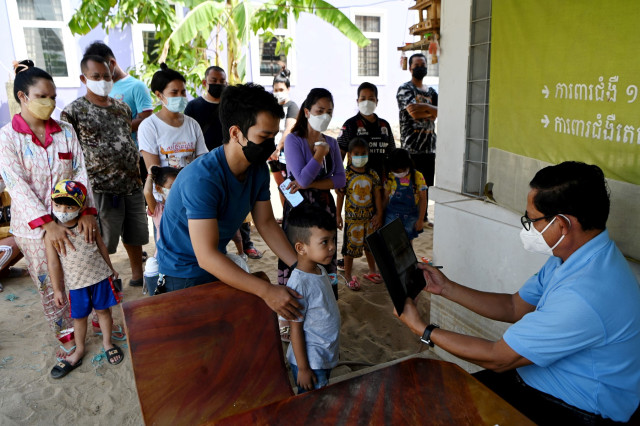Cambodia Needs to Boost Digital Education

- By Teng Yalirozy
- April 1, 2024 6:10 PM
PHNOM PENH – Cambodia is concerned over the small number of students enrolled in digital education, acknowledging the lack of digital training and diversity of the programs.
During the academic year 2021-2022, only 10 percent of the students chose digital-related degrees, which usually include majors in Information and Communications Technology. In contrast, over 60 percent of the students were pursuing an education in business or humanities, according to the Education Ministry.
Such a discrepancy leads to the lack of variety of digital skills needed in the workforce, as stated by the Ministry of Post and Telecommunications’ Digital Skill Development Roadmap 2024-2035.
Young Cambodian students tend to favor Accounting, Finance and Banking as well as Management, making up 42 percent of the total students in higher education in 2022.
The ministry, however, has seen a positive sign of digital education as the number of graduates increased from 2,818 in 2018 to 3,863 in 2022, while the number of enrollees increased from 11,867 to 17,508.
A total of 53 institutions and colleges offer digital degrees, of which 39 institutions are only focusing on Computer Science skills, creating overlapping training programs and non-diversified choices for students.
Fifteen institutions offer Management Information Systems (MIS); nine offer Telecoms and Networking; nine schools offer Software Engineering; one offers Digital Media design; the other one offers Game Technology while one institution has a course in Software and Web Development and the other one has Animation.
With 36 institutions, Phnom Penh remains the center of the country’s higher education. Other degrees in digital education are available in Siem Reap, Battambang, Banteay Meanchey, Kampong Thom, Kampong Speu, Pursat, Preah Sihanouk, Kampot, Takeo, Prey Veng, Svay Rieng, Tbong Khmum and Kratie.
“Many digital education institutions are in the city and the provinces with a potential and high population with many professors and job opportunities. This creates the opportunity gap between students in the city and the rural areas,” the ministry said.
Lack of experts in the workforce
A total of 202 companies surveyed said that they lack a workforce with digital skills to develop their company. They expressed they need content developers, software developers, technical innovation experts, and people who have problem-solving skills or know how to manage and protect data efficiently.
The ministry’s roadmap points out that the subjects and courses given at school are too basic and general. Twenty-five percent of the curriculum focuses on general subjects, such as English, Mathematics, Statistics and culture in the foundation year.
Subjects related to IT total around 43 percent of the training, with programming accounting for 17 percent of the curriculum, system and software making 14 percent, and network 12 percent.
“In the future, more heavy digital skills are needed to cater to the demand of the global need,” the ministry said. “Those skills include big data technology, artificial intelligence, robot technology, cloud computing technology and security.”
While the 202 surveyed companies said that they have to recruit new staff who possess great digital skills, their needs vary whether such companies work in the digital sector or not.
Enterprises in the tech field say they need people in software development, marketing technology, data and network management, electrical engineering, or graphic design.
Other companies don’t need such specialized digital skills but rather people with training or experience in digital marketing, data management, and graphic design.
“To sum up, digital skills and education in Cambodia are limited and haven’t been able to meet the demand in the workforce,” the ministry said in the roadmap.
According to the Digital Government Policy 2022-2035, only around 30 percent of the population have some digital skills.















